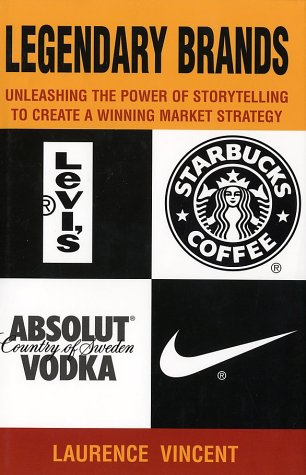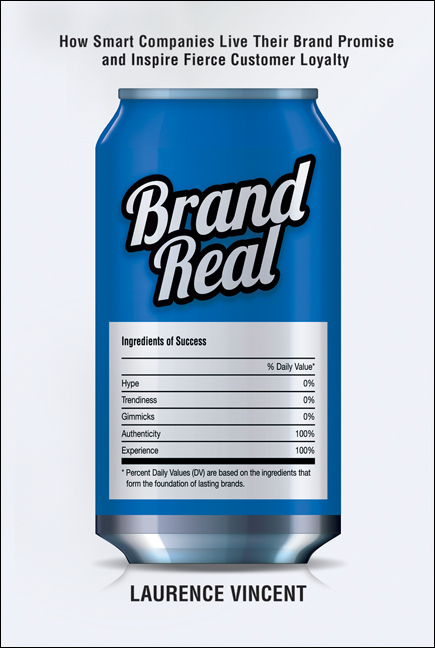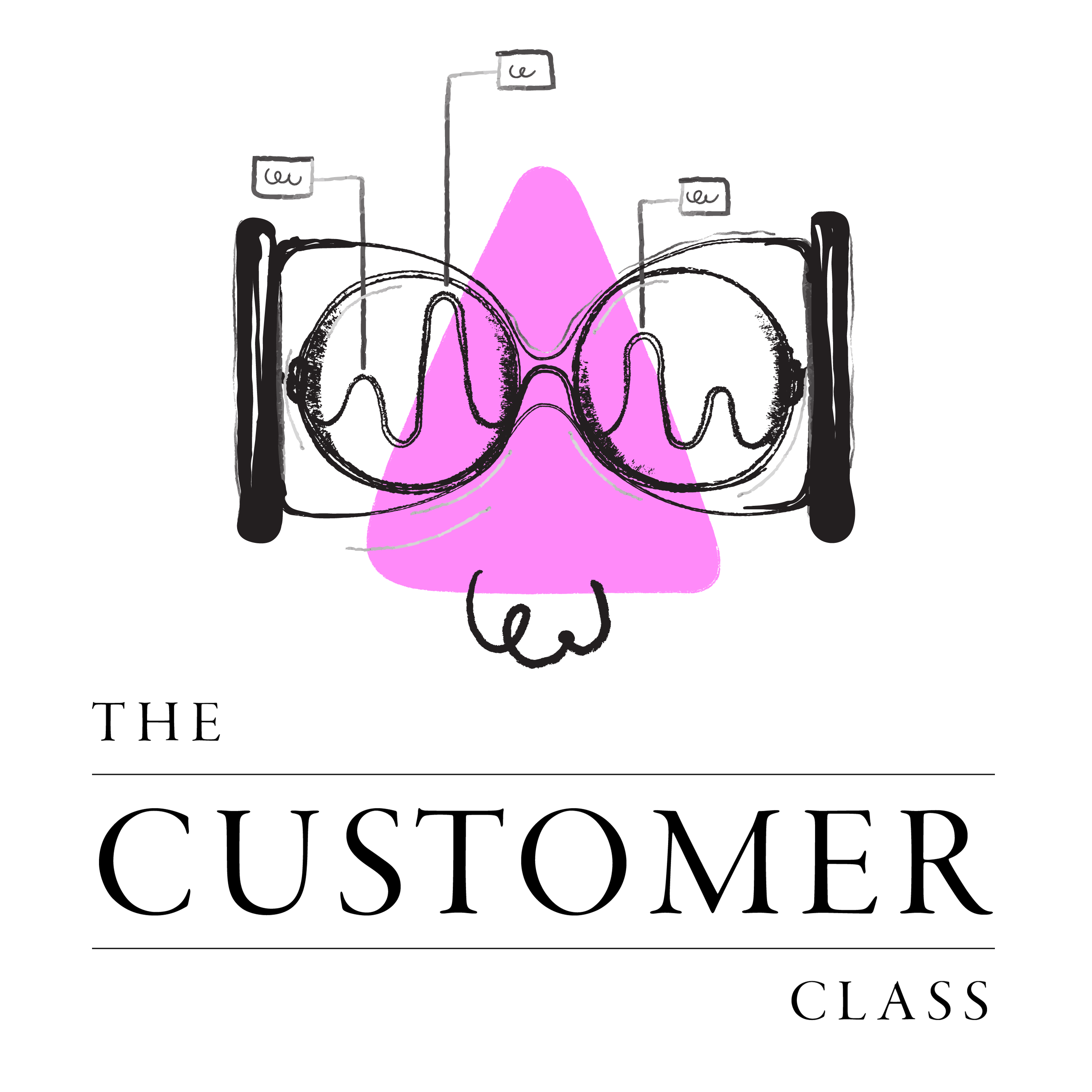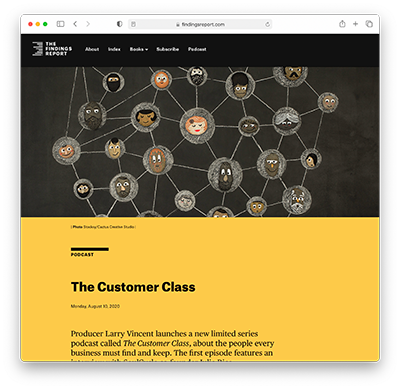Laurence Vincent
I am a strategist, researcher, educator, writer, and podcast producer. I founded Conclusive, a research-driven consultancy that focuses on companies competing in the science, tech, and media industries. I am also a Professor of Marketing at the USC Marshall School of Business, where I educate and mentor the next generation of business leaders. One of my favorite roles there is serving as the Academic Director for Marshall’s Executive MBA program, working with senior executives as they prepare to take the next leadership leap. I’m also a proud member of the core faculty for the Full Time MBA program.
Before pursuing my bucket-list wish to become a full-time professor, I was the Chief Branding Officer at UTA, where I co-founded the agency’s award-winning Brand Studio and led teams of researchers, strategists and designers to create brands for clients such as Issa Rae, Seth Rogen, Sofía Vergara, Chris Pratt, Channing Tatum and Lauren Conrad, among others.
I have been working in marketing and branding for more than three decades, and have been fortunate to develop strategies for companies like Citrix, Disney, Illumina, MasterCard, Mattel, Microsoft, the NFL, Nikon, Qualcomm, and Sony Playstation.
I am a very proud supporter of childhood cancer fighters at Alex’s Lemonade Stand Foundation, and am grateful to serve as its board chair.
Books
Brand Real
Companies are forever being more creative in their branding strategies, building identities ranging from the warm-and-fuzzy to the ultra-cool and edgy. But it seems that many of these enterprises forgot that a brand, at its heart, is a promise to deliver. If the brand experience does not live up to that promise, customers will take their business elsewhere.
Brand Real is a business strategy guide for making a brand’s promise stand up at every customer touch point. Packed with proven, repeatable management practices, the book shows how to establish a clean brand architecture while avoiding the needless complexity that has tripped up many promising companies.
Brand Real features cautionary tales of supposed brand superstars as well as instructive case studies of genuine brand giants like American Express, Apple, Cisco, Google, Qualcomm, Virgin, and others. Readers will learn how to connect the outward-facing elements of their brands—logos, advertising, imagery, communications—directly to the core elements of business strategy and forge a powerful and lasting connection with their customers.
Legendary Brands
Legendary brands gain popularity through emotion, identity, and personal attachment. They are the likes of Apple, Harley-Davidson, Nike and numerous other consumer brands that persuade people to behave by connecting with their most ingrained belief systems. Legendary brands forge bonds with consumers through narratives and myths. Their managers think like storytellers and understand the universal narrative cycle that binds consumers to belief systems.
An award-winning book that has been translated into seven languages, Legendary Brands defines the framework that allows an elite set of brands to exert extraordinary influence with their consumers, and it provides lessons marketers can use every day to win trust and inspire loyalty.

Podcasts
The Customer Class
I created this limited series podcast to accompany my lectures for MKT 512 (Customer Insights & Analysis) during the COVID-19 pandemic. It focuses on the people every business must find and keep: customers. Each episode covers a different aspect of customer marketing, and features an interview with an industry leader for practical perspectives. Guests include Julie Rice (co-founder of SoulCycle), Kevin Hartman (Google), Beverly Jackson (Twitter), Sandeep Dube (Delta Air Lines), Melissa Hanna (CEO of Mahmee) and Christine Mauro (Salesforce).
The Findings Report
The Findings Report is a podcast about human behavior. Each episode offers insights on the intersection of consumer trends, popular culture and psychology. Hosted by me and my friend, Molly Schreiber, the show features interviews with leading researchers, tastemakers and business leaders.
The Point of Attachment
The Point of Attachment is a podcast series I developed and produced shortly after launching UTA Brand Studio. It focuses on the insights and strategies that draw people to brands through the lens of culture, design and storytelling. Each episode is a field expedition in 20 minutes or less, designed to answer a central question that is relevant to modern brand managers.
Blogs
The Findings Report
The Findings Report is a cultural digest for people who are curious about why we buy, like, and share. Its mission is to provide useful insights for marketers, entrepreneurs and cause leaders.
Every day, new research is published about consumers and their brands. Unfortunately, most of this research never finds its way to the people who actually serve consumers and build brands. That’s why The Findings Report exists. We summarize and share the great work of researchers in the academic community and in the thriving business of consumer marketing.
Jordans Journey
Jordan’s Journey is the chronicle of a cancer clayer. The project began in 2004 when my then five-year-old daughter Jordan was diagnosed with brain cancer. It is a living memoir that shares the ups and downs of living with childhood cancer.
Teaching
I am a proud member of the faculty at USC's Marshall School of Business, where I am a Professor of the Practice of Marketing. I teach undergraduate and graduate courses on marketing, with an emphasis on marketing research, branding, product development, and innovation.
Recent Courses taught include...
New Product Development (MKT 530)
This course in new product planning provides a condensed simulation of the key aspects of a typical new product development planning cycle. The course places particular emphasis on marketing management issues and activities that accompany phases commonly involved in conceiving, developing, testing and launching a new product, service, or other marketing innovation. It considers recent approaches in the field, including agile development and crowdsourcing, and revolves around a group project in which teams of students develop a new product plan that is then presented to real business leaders. It is a particularly relevant course for graduate students due to the frequency with which newly minted MBAs are assigned to work on new product development projects.
Customer Insights & Analysis (MKT 512)
Without customers, businesses could not succeed. The term “Customer Centric” has therefore become synonymous with proactive business strategy worldwide. The advancement of information technology has enabled marketers to obtain a rich amount of data about their current and prospective customers, covering a wide spectrum such as their purchase history, online search, offline store visits, app use, social media post, responses to marketing, and etc. Customer analytics, involving a broad range of activities that rely on data to more effectively manage customer relationship and engage consumers in their buying journey, has risen to be an important functional area of firms. This course introduces students to various research methods and analytical tools to analyze and act upon customer data. It improves their marketing decision making, especially in the context of digital environments. The tools taught in this class are essential for developing a successful career in customer insights/analytics, customer relationship management, database marketing, digital marketing, service marketing, and marketing/management consulting.
Marketing Management (GSBA 509 & GSBA 562)
This fundamental marketing course is part of the full-time MBA core curriculum. It helps students analyze and develop profitable customer markets by creating, managing and communicating strategic offerings (products, services, and brands) that deliver superior value. The course adopts an integrated approach that relies upon numerous real-world case examples to establish core concepts and frameworks within a practical context that students are likely to encounter in their careers, regardless of their managerial discipline, industry, or geography.
Marketing in STEM Industries (MKT 499)
STEM industries (companies focused on science, technology, engineering, and mathematics) are the largest drivers of growth in modern economies. One study estimated that two out of three US jobs and 70% of US GDP can be attributed to science, engineering and math activities. Not sur-prisingly, careers in STEM industries are among the most alluring opportunities for the aspiring leaders and managers attending today’s business schools. Jobs at companies such as Google, Amgen, Space X, Tesla and Apple are at the top of student wish lists.
Yet marketing practices within STEM industries can be quite different from those found in more conventional product and service categories. The complexity of the value proposition, the diffuse and intricate nature of their market structure, along with the rapid pace of change that is endemic within these industries pose unique marketing challenges.
This course prepares students to navigate the demanding but rewarding marketing terrain of STEM industries. It begins with a review of the foundational concepts and marketing issues that STEM managers must address and then it explores the practical ways these concepts manifest in each of the four industry verticals. Students discuss and debate core concepts through a carefully curated selection of real-world cases.





